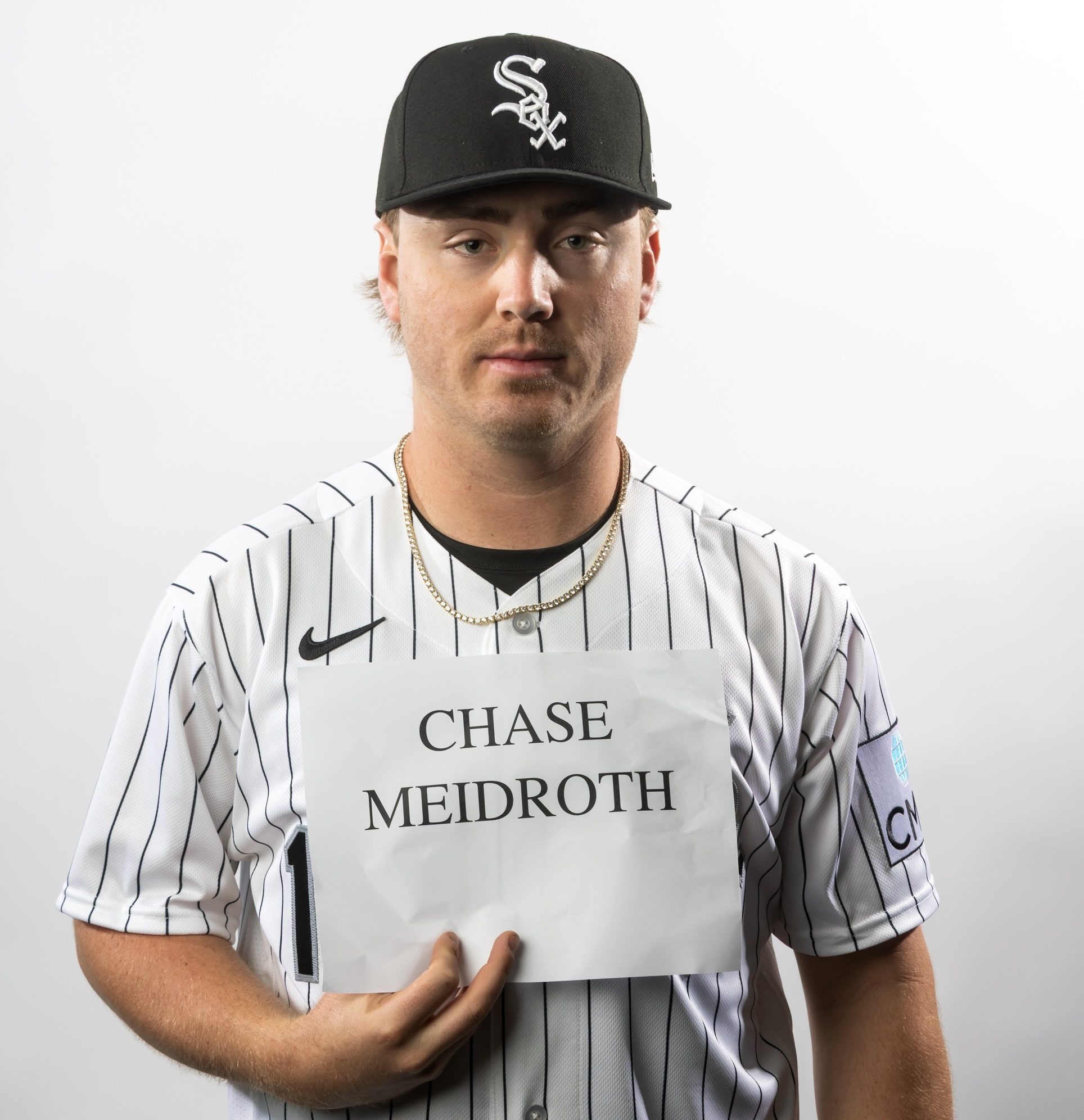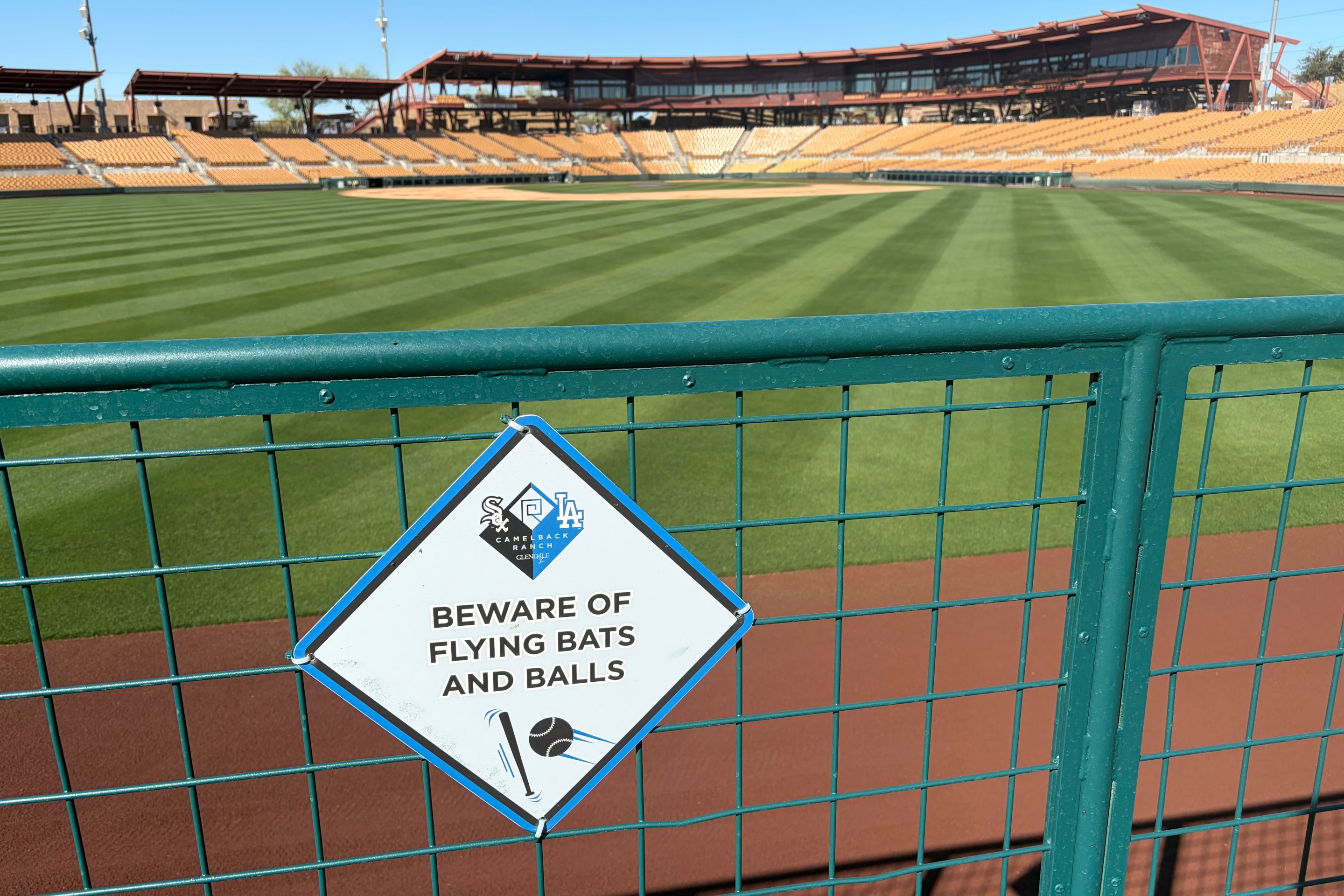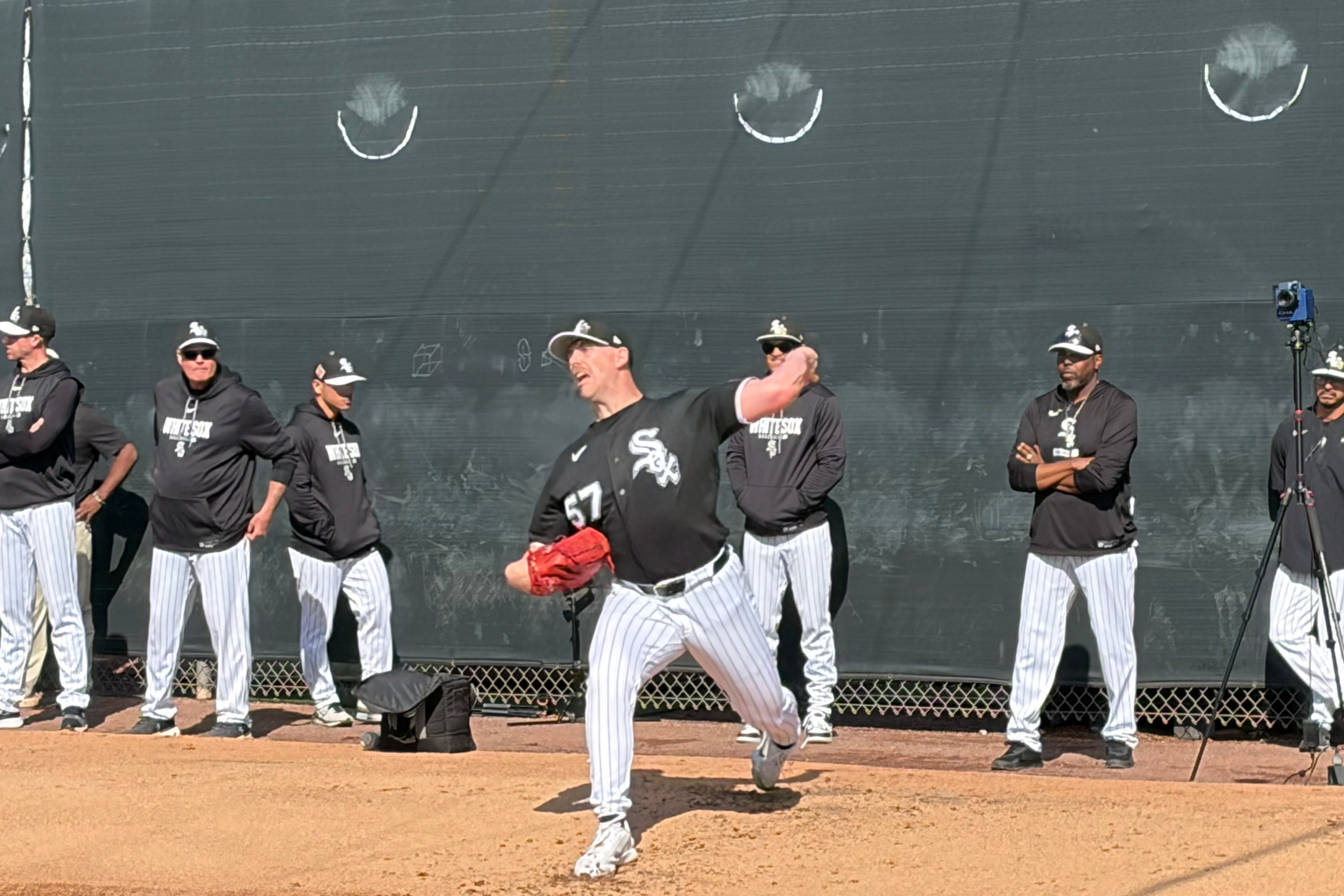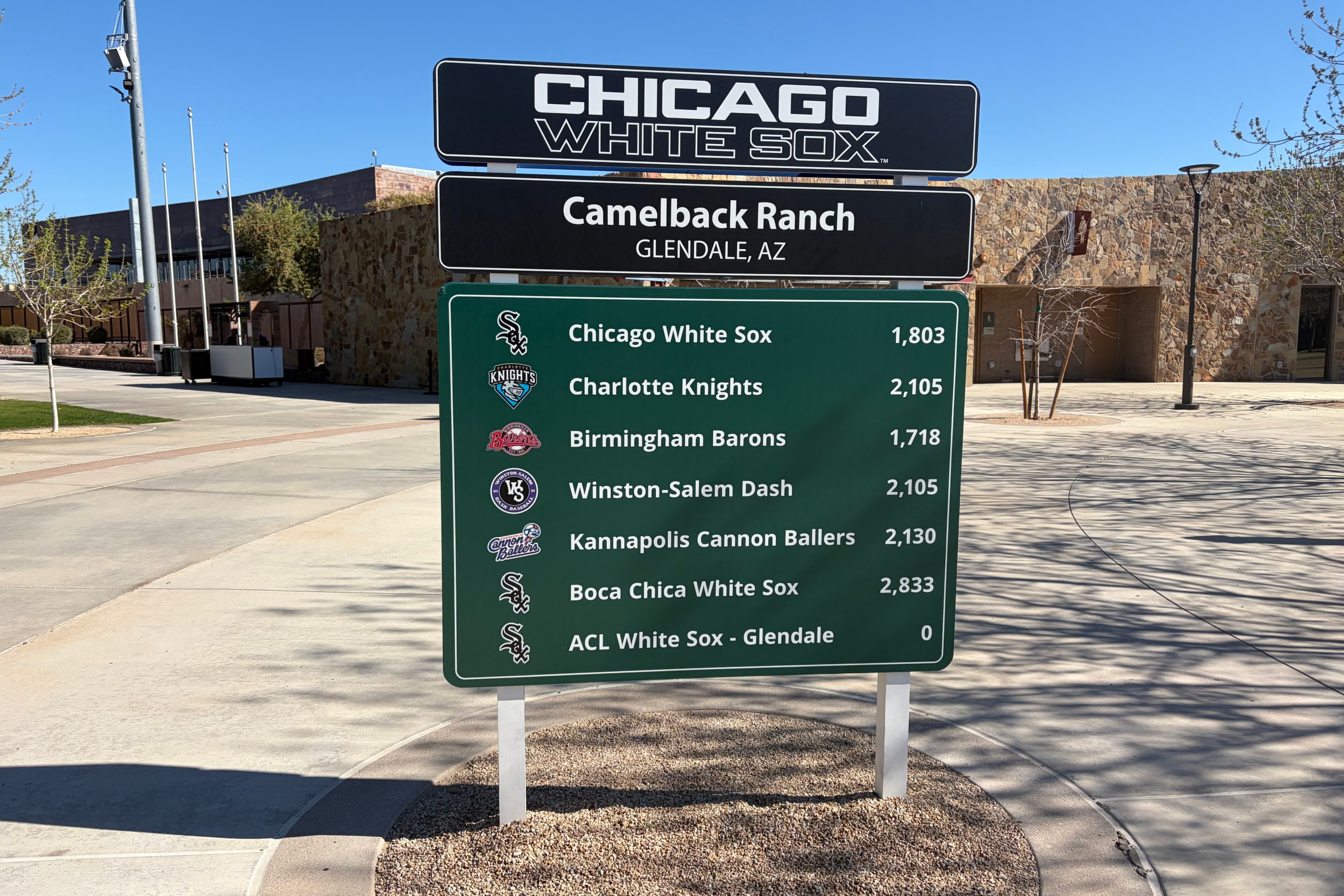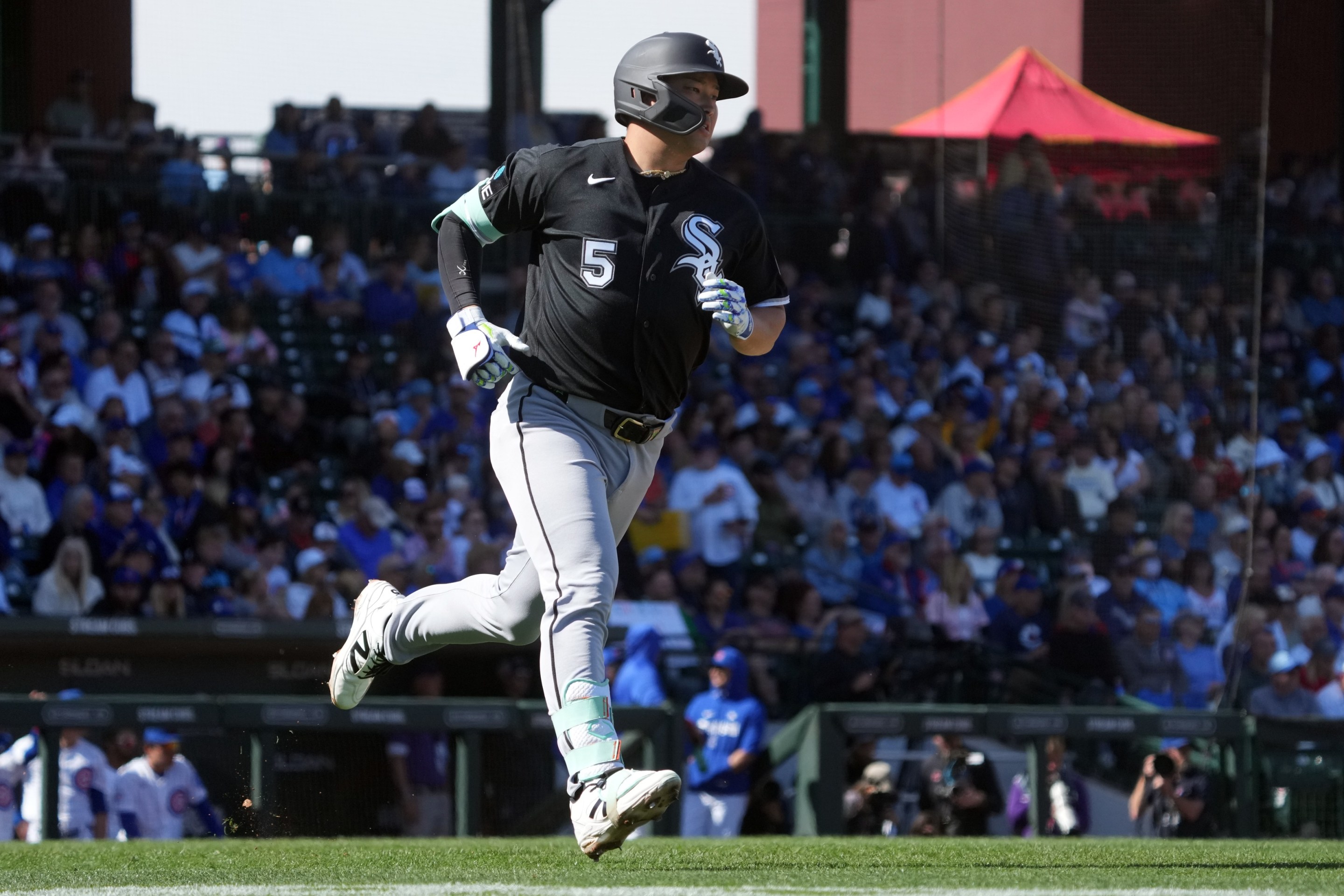He might have thrown you off the scent when he talked about basketball being his first love, or how he barely watched baseball while growing up, or when he irked many by going so far as to call it a "boring sport," but there's no hiding it anymore for Tim Anderson. Signing a minor league deal to battle it out for an infield job with the Angels while Zach Neto recovers from shoulder surgery requires some measure of affection.
He loves this silly game.
"I found it," Anderson said, decked out in red and gray warmup gear in the visitor's dugout of Rate Field. "I found it once I got released in Miami. I didn't want to play no more. I shut it down for the rest of the season. I went in the lab and I just kept working, kept working. And it was just...man, I still can do this. I still want to chase something impossible, which is greatness. My talent plays."
Anderson's talent had not played in Miami in 2024, where he hit .214/.237/.226 in 65 games before being designated for assignment, posting the highest strikeout rate and lowest power outputs of his career. Watching him from afar, Anderson's play resembled his struggles after a groin strain knocked him out for three weeks in 2022, as White Sox coaches lamented the loss of Anderson's ability to "get into his legs" in his swing and the former 20-20 player was limited to one home run over his final 39 games before a torn finger ended his season entirely.
Or it even better resembled Anderson's nightmarish final season in a Sox uniform in 2023, after he had spent the prior winter training regularly at the Driveline facility in Arizona in an effort re-find his form. But 10 games into that year, a freak MCL sprain on a botched rundown play had the two-time All-Star quite clearly playing through discomfort when he returned to action four weeks after the injury. Anderson hit a paltry .245/.286/.296 on the year as the team skidded to an 101-loss season that triggered a front office turnover, and hasn't looked quite the same since.
As he labored at the Maven Baseball Lab in Atlanta to re-find the swing that made him a batting champion, and even now after making the Angels after a so-so spring, Anderson finds himself working to shed bad mechanical habits that he feels he picked up while playing hurt in 2023.
"Just movements and manipulating the swing while trying to accommodate the leg injury," said Anderson, derisively comparing the leg load in his swing to a dog peeing on a tree. "You're still fighting this habit you created and you're still fighting this journey. I've failed so much. I feel like I've been failing for a year and a half, two years. I'm fighting this wondering of 'When is it going to happen? When is it going to happen?' and 'Keep going, keep going, keep going,' and the hardest thing to do is believe. Keep believing that it's going to show up."
Despite the seemingly dour tone, Anderson sounds at peace throughout the conversation. This is a discussion about work, and life is a lot more than work. He'll openly tell you that mistakes in his life dragged him down when his work production was at its apex. And now that he says he's at peace with his off-the-field life while fighting to stay in the majors, Anderson is convincing when he intimates that he prefers this over vice versa. After all, more people than Anderson had to think long and hard about how much being tied to the White Sox really meant to them over the course of that awful 2023 season.
In a conversation in May of that year, as he was only begrudgingly acknowledging how much his knee was bothering him, Anderson told me he was motivated to avoid a growing reputation that he couldn't stay on the field. He had entered the non-guaranteed portion of the life-changing contract extension he signed after his 2016 debut, right as a cadre of elite shortstops he wasn't too far removed from being mentioned among were cashing in with nine-figure deals in free agency.
As he looks back on it, Anderson doesn't diminish his role in the decision to play through it. But standing on the other side of it, where the team he raced back to help conducted a fire sale at the trade deadline and declined his $14 million club option at the end of the season, while Anderson is still in 2025 engaged in a search for his old swing, he can think of a different route he'd pick with the benefit of hindsight.
"If I knew it was going to go the way that it went, I wouldn't have played," Anderson said. "If I knew that was going to be my last year, and I knew they were not going to pick up my option, I wouldn't have forced the issue of going out there and playing and trying to be like this superman, and then we weren't playing for shit.
"It's more so within myself. Because I'm a competitor. I want to play. But if I knew it was going to go that way, if I knew [general manager Chris Getz] was going to pull the string on my option, I wouldn't have played. I would have just rode it out and let them do what they had to do. I would have more so taken care of myself rather than let the team push me back out there to play, if that makes sense."
To be clear, few -- if any -- teams would have picked up a $14 million option for a player coming off such a difficult, injury-riddled season, least of all a White Sox club shedding payroll and rebuilding under a new general manager. Even if they still retain the affection that Anderson's dominant years in a White Sox uniform fostered.
"We love TA and want him to succeed," Getz said. "He did some really good things for this organization both on and off the field."
That Anderson eventually settled for a one-year, $5 million deal from the Marlins a week into 2024 spring training reflects the market he had. It's just that however fast it felt to watch Anderson shift from franchise mainstay on a team with playoff aspirations to an extraneous expense for a rebuilding roster, it felt faster to live it.
"If I knew I was going to be able to be free from the knee, able to move how I wanted to move, maybe I would have played, but I still was hurt," Anderson said. "I was still hurting going through that sprain of my MCL. But I wanted to play, and me playing with that created so many bad habits that I'm still fighting to get up out of."
Anderson doesn't have any regret about his early career contract extension, which ultimately paid him $37.5 million, a deal he told his agent at the time that he wanted to do for a sum he still calls "life-changing." For someone who largely wishes he could have stopped and smelled the roses more as a younger player, or had a more long-term view about playing through pain, he can't imagine that playing without such a guarantee would have done him any good, or led to any better decisions.
He ultimately entered this weekend with no assumptions with how he'd be received by White Sox fans as he took the field in new colors, since Anderson views the team's would-be contention window of 2020-22 similarly to them: a mission not completed. But the warm reception affirmed what Anderson had already begun hinting at in public comments, that he felt he had put enough on the line to make those teams great to hold his head high upon return.
"I understand the culture of sports in Chicago, and I understand that we really didn't finish the mission of what we set out to do," Anderson said. "But the real fans who knew who their guys were, who was coming to give it to you every day, to compete every day whether they're sad, bad, or sore. The real fans do, and I think that was appreciation from the real fans."
Almost six years after Anderson ruffled feathers by saying his work to shake up the sport made him "feel like today's Jackie Robinson," it's almost a source of amusement how there's still no smooth way to sum up why his run in Chicago so resonated with people. Because he hit .300 and ran like the wind just when the game was becoming overrun with strikeouts and homers? Because he was a dual-sport athlete who emerged from an obscure junior college rather than a product of the travel ball/showcase circuit? Because he was a Black American star on the South Side of Chicago just when that was becoming strangely rare? For none of these reasons? For all of them?
"Random people will be like 'Man, I'm proud of you,' and it's like 'For what?'" Anderson says with a smile.
It's confounding. But at this confounding point of his career, where at 31 he feels far too young to not have some more good baseball in him, it's another reason for Anderson to keep going, hoping that a breakthrough is still coming.
"The story is inspiring," Anderson said, "I'm aware of that. The biggest thing is I want to finish it. I don't want it to get cut short."

